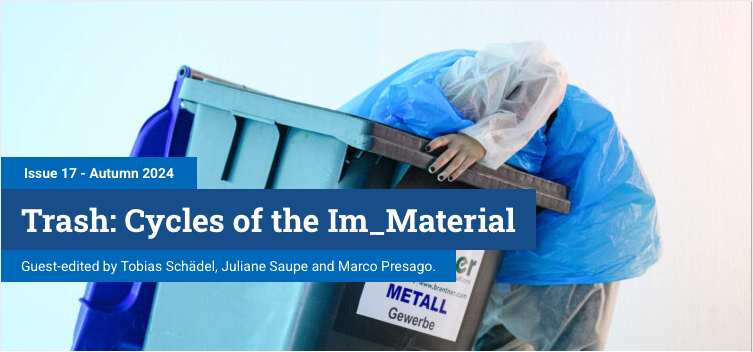The Value of Literature
The Discard of Society in Wilhelm Raabe’s Pfisters Mühle: Ein Sommerferienheft
DOI:
https://doi.org/10.22029/oc.2024.1442Keywords:
discard studies, capitalism, aesthetics, pollution, valueAbstract
This _Article explores the way in which Wilhelm Raabe’s 1884 novel Pfisters Mühle: Ein Sommerferienheft signals and depicts how society’s transition into industrial capitalist conditions leads to discarding previously valued forms of social and economic arrangement. To demonstrate this process, this paper utilizes aspects of Michael Thompson’s rubbish theory that find resonance in the novel’s depiction, as the system of values that had symbolized a more rural manner of living gradually change from a durable to a rubbish state. In Raabe’s novel, that process is depicted with a sugar factory, Krickerode, polluting the waters upstream from Pfister’s mill. This leads to the closure of the mill, Bertram Pfister’s death, and the way of life they together represent. Evidence for the reconfiguration of societal values according to industrial capitalist priorities (i.e., commodification and capital accumulation) arises when, in reaction to the pollution and its devastating effects, characters shift attention to decision-making on the part of mill’s proprietor, Bertram, using a nascent finance language. Why didn’t he cofound (mitgründen) or purchase stocks (Aktien) in the sugar factory? Why not become a shareholder (Aktionär) and become a partner to progress, rather than, as it is implied, a victim? This paper concludes by examining how the narrator’s account and its transformation into rubbish become its own repository of non-valued value that stands outside the trappings of any given system.
References
Downloads
Published
Issue
Section
License
Copyright (c) 2024 Matthew Childs

This work is licensed under a Creative Commons Attribution 4.0 International License.




